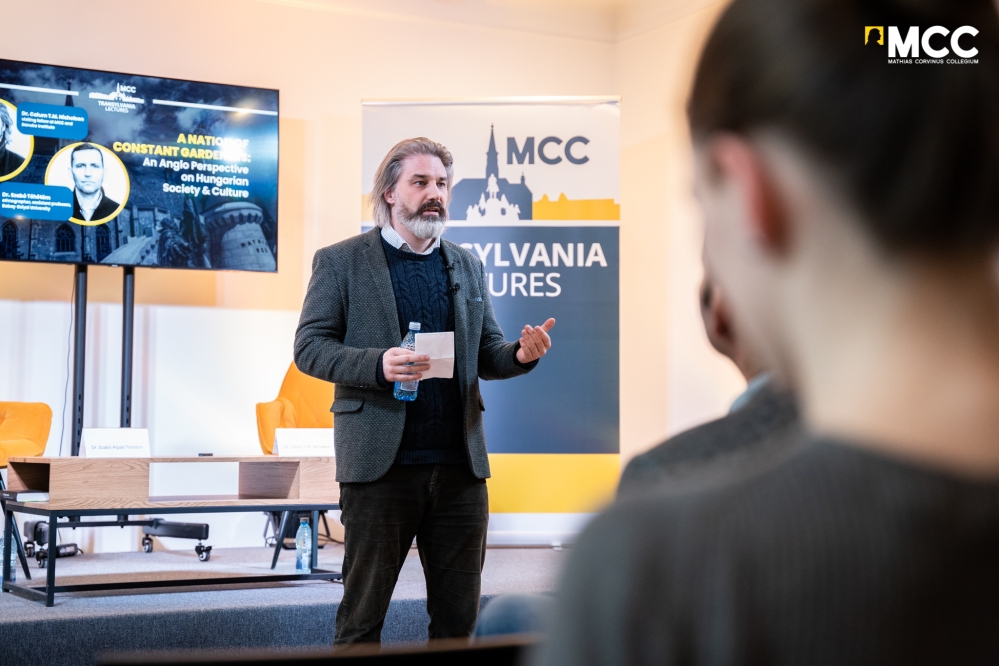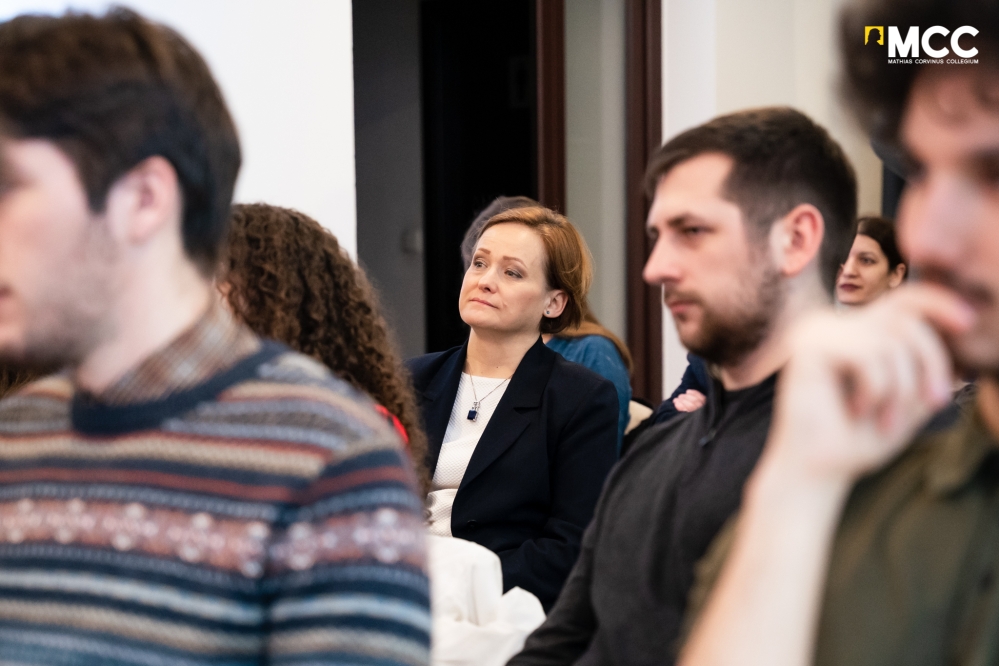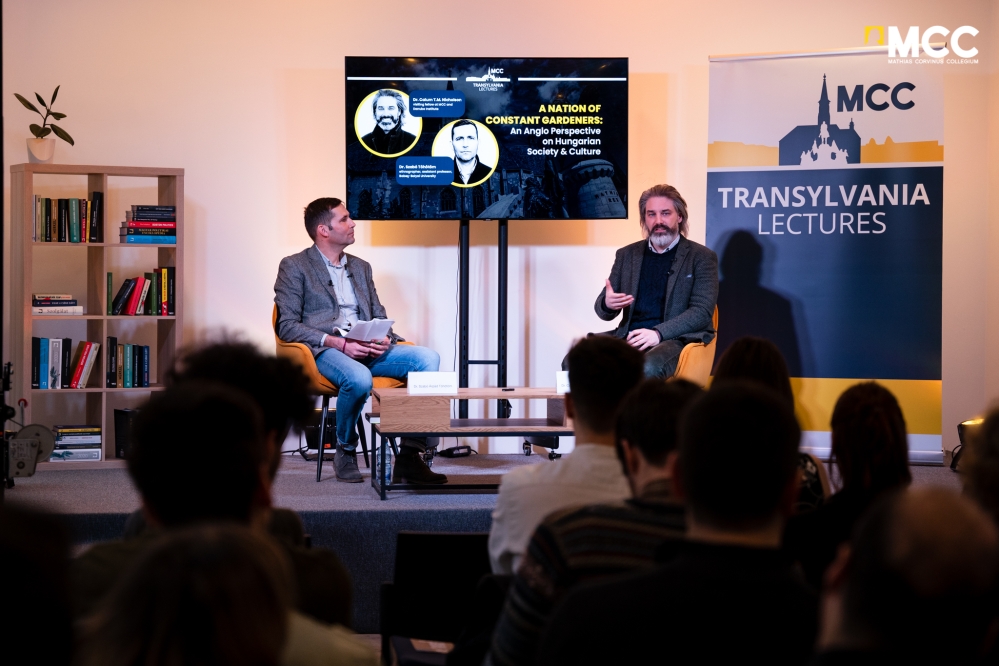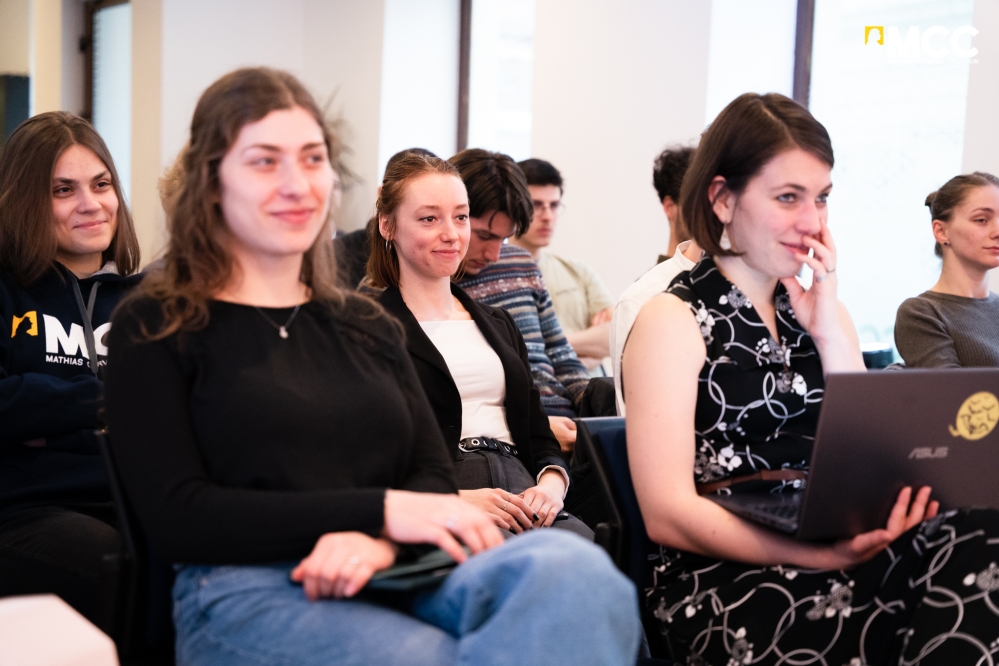Reading time: 4 minutes
Mathias Corvinus Collegium (MCC) hosted another interesting discussion on Tuesday 21 February in Kolosvár/Cluj-Napoca. This time, the guest of the Transylvania Lectures series was British-Canadian anthropologist Dr. Calum T. M. Nicholson, who discussed the surprising parallels and interesting differences between British and Hungarian culture and history with ethnographer Dr. Árpád Szabó Töhötöm.
After a year and a half spent in Hungary and several visits to Transylvania, Calum T. M. Nicholson shared his experiences and observations at the recent Transylvania Lectures. He is a visiting lecturer at MCC and the Danube Institute, he studied social anthropology at Cambridge, migration studies at Oxford, and completed his PhD in human geography. Earlier he served as a development consultant and a researcher for the UK Parliament. The lecture provided a fresh perspective on the similarities and differences between the Anglosphere and Hungarian society, drawing on his hypotheses and personal experiences as an anthropologist. The moderator of the discussion was Dr. Árpád Szabó Töhötöm, ethnographer and assistant professor at the Department of Hungarian Ethnography and Anthropologyof the Babeş-Bolyai University.
Transylvania Lectures is a series of monthly public events featuring foreign speakers. Held at the MCC Centre in Kolozsvár, the talks are mainly aimed at students, but anyone interested can attend and ask the invited experts questions on the important and divisive issues of our time. "The Transylvania Lectures have been running for a year now and are a highlight of the MCC's activities in Transylvania, as we have the opportunity to host distinguished academics who not only meet our students, but any member of the local community can participate and contribute to the discussion," said Botond Talpas, general director of MCC Transylvania.
At our last lecture, Ákos Péter, a student of the MCC's University Program, welcomed the audience and then gave the floor to Calum Nicholson, who compared Hungarian nation-building to gardening. He said that history is the good soil on which today's culture can be built, and that neighbours should give space and light to the garden so that the crops can grow. The anthropologist observed that the Hungarian people have not always had good "soil" throughout history, as many people have harmed it and neighbouring countries have often cast shadows over it, blocking out the light that gives it life. This means that people have had to work hard in the garden all the time, this way a strong Hungarian consciousness has developed. In his opinion, although the situation of Hungarians, and especially being a minority, is often seen as a disadvantage, this, together with a strong national consciousness, can be beneficial, as it teaches diplomacy, sensitivity to the environment, realism and pragmatism. According to Calum Nicholson, there is a stronger attachment to identity among the Hungarians living outside of Hungary, a mindset that is lacking in the British.
The speaker mentioned that the similarity between Britain and Hungary is that both can be considered islands: while one is surrounded by water, the other is linguistically separated from the surrounding areas. The historical success of the Anglosphere has also been marked by the fact that its borders are objective, with water as a clear dividing line, but where they are on land (as in the case of Northern Ireland and Mexico), conflicts have appeared. Calum Nicholson says that perhaps this is why the Anglosphere sees a lot of things in black and white, and often fails to understand Hungarians, who are used to thinking in more complex, diplomatic terms, as they have to deal with many sensitive issues. The traumas of the past and the attachment to history, which plays a significant role in the formation of the Hungarian national identity, have contributed greatly to this.
During the discussion, Töhötöm Szabó pointed out that cultural anthropology is both about getting to know the other, the strange and distant, and at the same time understanding ourselves from the perspective of other cultures. Calum Nicholson agreed, adding that his stay in Hungary had taught him both how to get to know a foreign culture and how to examine his own as a stranger, and that he always likes to visit Transylvania, where he has found open and welcoming people.



